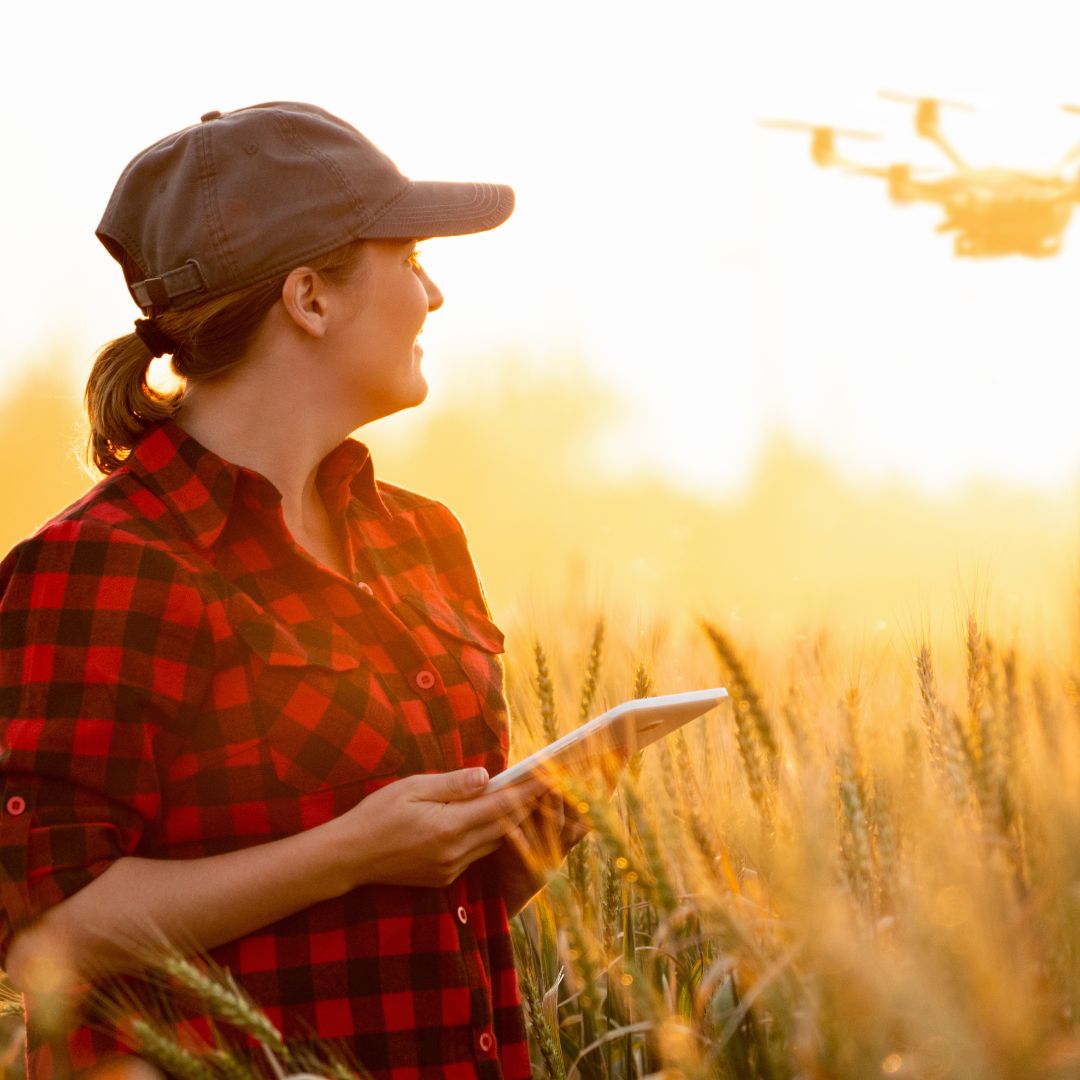In an era where efficiency and precision are paramount, integrating technology in commercial pest control practices is revolutionizing how businesses approach pest management. Gone are the days of broad-spectrum pesticide applications and labor-intensive monitoring techniques.
Today, drones and robots are at the forefront of this evolution, offering innovative solutions that promise to enhance the efficacy of pest control efforts, improve safety, and reduce environmental impact. Let’s delve into the various ways these technologies are reshaping commercial pest control, offering a glimpse into a future where pest management is smarter, more precise, and environmentally conscious.

Surveillance and Monitoring
The use of drones in pest control services has transformed surveillance and monitoring into an efficient and comprehensive process. Equipped with high-resolution cameras and advanced sensors, drones offer a bird's-eye view that can detect pest infestations in their early stages, often before they become visible to the human eye. This early detection is crucial in commercial settings, where the timely identification of pest issues can prevent widespread damage and significant financial loss. Moreover, drones can cover vast areas quickly, ensuring that no corner of a commercial property is left unchecked.
In addition to spotting potential problems, drones collect valuable data on pest behavior and infestation patterns. This information is vital for developing targeted pest management strategies that are effective and cost-efficient. By understanding where and when pests are most likely to strike, businesses can optimize their pest control efforts, focusing resources where they are needed most.
Precision Pesticide Application
Drones are revolutionizing the way pesticides are applied in pest control for businesses. With the ability to pinpoint specific areas that need treatment, drones reduce the volume of chemicals used, minimizing environmental impact and saving costs. This precision application is especially beneficial in commercial agriculture, where drones can target pest-infested crops without affecting the surrounding areas. The result is a more sustainable approach to pest management, where beneficial insects thrive and ecosystems are preserved.
Furthermore, drones equipped for pesticide application can operate in challenging conditions, such as uneven terrain or large commercial properties, where traditional methods may be less effective or feasible. This accessibility ensures that every part of a business's property receives the attention it needs, enhancing the overall effectiveness of pest control efforts.
Automated Ground-Based Pest Control Robots
The deployment of ground-based robots in commercial settings marks a significant advancement in pest management technology. These robots navigate through properties autonomously, identifying and addressing pest issues without human intervention.
Some models use mechanical means to eliminate pests directly, offering a chemical-free alternative to traditional pest control methods. This approach reduces reliance on pesticides and supports a more sustainable and environmentally friendly pest management strategy.
Additionally, robots equipped with advanced sensors can perform detailed soil and plant health inspections, identifying issues that may invite pest infestations. By addressing these underlying problems, businesses can prevent pest issues before they start, saving time and resources in the long run.
Weed Control with Precision Robotics
Weeds are not just a nuisance; they can harbor pests and diseases that affect commercial crops and properties. Robots offer a solution to this challenge, employing cutting-edge technology to precisely identify and remove weeds. Unlike broad-spectrum herbicides, robotic weed control targets only the unwanted plants, leaving the surrounding area undisturbed. This accuracy is invaluable in maintaining a healthy environment where commercial operations can thrive without the threat of pest-related issues.
Moreover, the use of robots for weed control exemplifies the shift towards more intelligent and sustainable pest management practices. Businesses can protect their crops, landscapes, and ecosystems by reducing the need for chemical herbicides, contributing to a healthier planet.
Soil Analysis and Treatment Robots
Understanding and maintaining soil health is fundamental in preventing pest infestations in commercial settings. Robots designed for soil analysis and treatment offer a groundbreaking approach to this aspect of pest management. These machines can assess soil conditions and apply treatments directly to areas at risk of pest activity. This targeted intervention helps prevent pests from taking hold, safeguarding crops and properties from potential damage.
The precision and efficiency of these robots represent a major step forward in pest management technology. By addressing the root causes of pest infestations, businesses can adopt a more proactive and preventative stance on pest control, leading to better outcomes and reduced reliance on reactive measures.
Empower Businesses Through Advanced Pest Management Technologies
The advent of drones and robots in commercial pest control is more than just a technological novelty; it's a transformative shift towards smarter, safer, and more sustainable pest management practices. As businesses embrace these advanced pest management tools, they unlock new possibilities for protecting their operations from pests while minimizing environmental impact and optimizing resource use.
Embracing these innovations enhances pest control efforts for businesses and demonstrates a commitment to sustainability and efficiency. As the industry continues to evolve, drones and robots will undoubtedly play an increasingly central role in shaping pest management strategies that are effective and aligned with the broader goals of environmental stewardship and responsible resource management.
Our Style Guide



